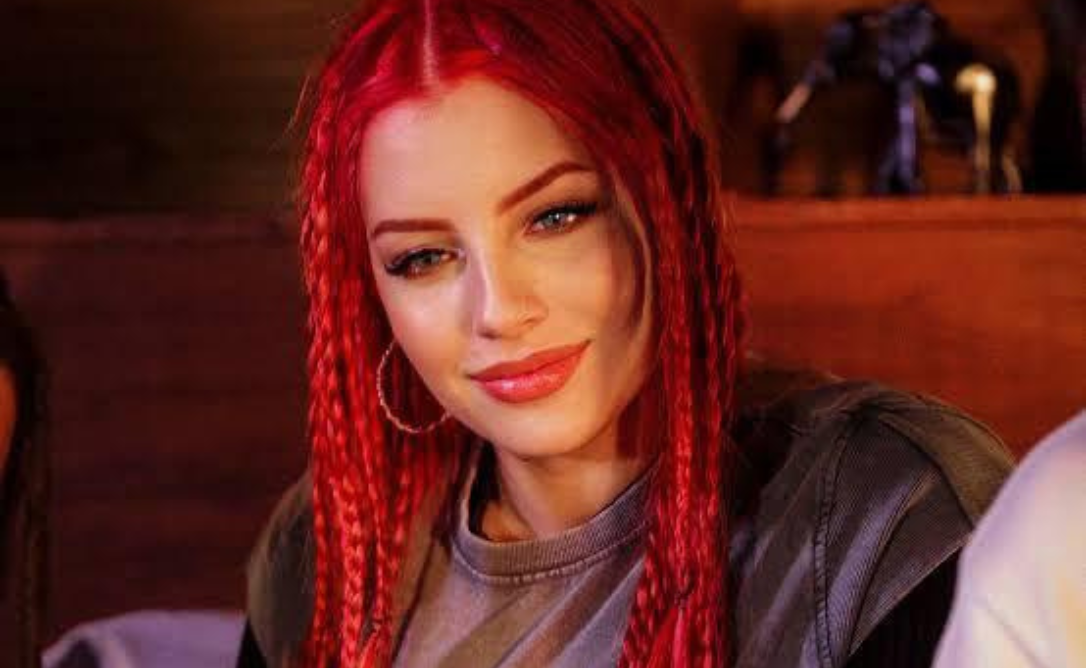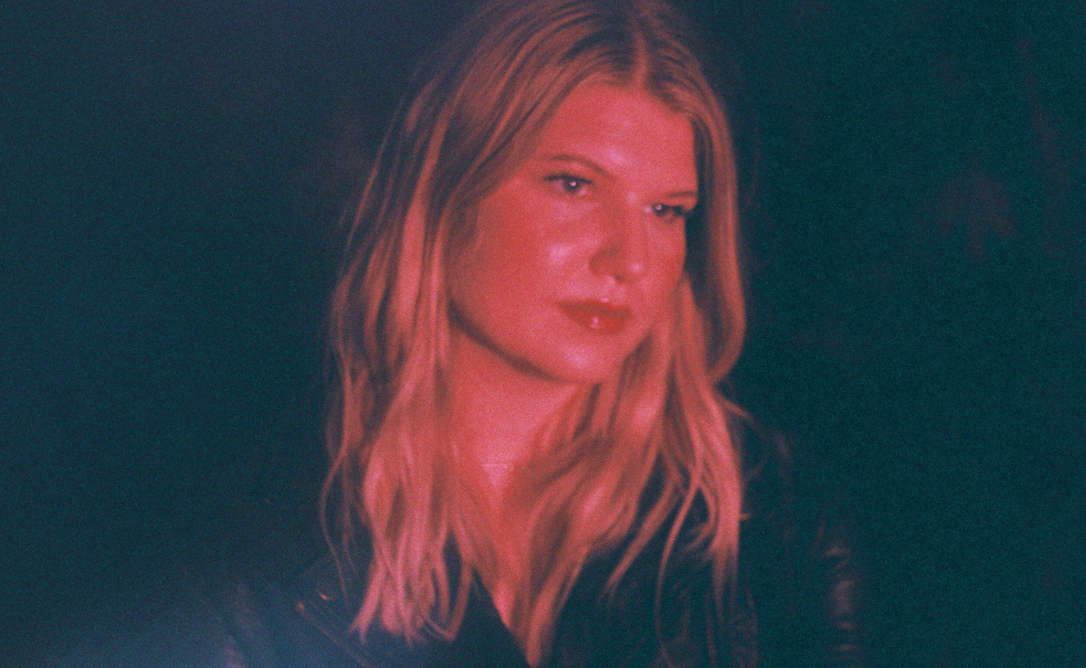Born in Carajás, Pará, and based in São Paulo, Gabriela Abdala has followed an artistic path that combines music, comedy and activism. At the age of 18, she left her homeland to follow her dream of becoming a singer. In 2024, the artist found her true path in music, with the success of her first single ” Emptiness “, which earned her a nomination for the Prêmio Profissionais da Música. In addition to her promising musical career, Gabriela stands out as a comedian, jiu-jiteira and vegan activist, always seeking a balance between her passions and her commitment to greater causes.
Since you were 6 years old, you knew that music was your path, but you took other routes until you finally gave in to this dream. What was that moment of decision like in 2024 and what most motivated you to finally say “now is the time”?
Actually, this “Agora é a Hora ” moment was in 2020, but things take a while to record the song, mix it, master it, and then go after the video. It was right at the time of the pandemic, which also delayed the recording of the video. But I believe it was the feeling of… I can’t stand living anymore without working towards my purpose. Even though I’ve always been involved in the artistic field and everything, my dream is always linked to music. And since I always put it on a very high pedestal, I had difficulty really facing it and getting started. So it was around the second half of 2020 that I was able to go to the studio and really start recording my own songs. Today, I already have several songs recorded and I plan to release several singles in 2025 and in 2026, I’ll release my first studio album.
Your first single, “ Emptiness ,” not only marked your debut as a singer, but also earned you a nomination for the Prêmio Profissionais da Música. How did you feel seeing this song — so intimate and a debut — being recognized in this way?
I really care about my song Emptiness and I was very happy, very happy indeed to see it being recognized in awards ceremonies. There are people who don’t care much about awards ceremonies and I myself don’t care much about any other area, but in music specifically I really feel very happy, very happy indeed. And I hope that my songs can always reach that place of recognition by professionals, of awards. I think it’s really cool to take something as abstract, as subjective as music, to this place of criticism, of… it seems like something more tangible, like when you put it in a competition and really analyze it and even get to major awards with a song, which is something that comes to the artist and he composes it on the guitar and records it. Something so abstract, so simple, but at the same time it can reach such great places.

You’ve been a pastry chef, a makeup artist, an event producer, and a comedian. Each of these phases seems to have left something in you. What did these experiences teach you that is reflected in the artist you are today?
Everything I’ve ever worked on in my life really adds a lot to me, both as a person and as an artist. For example, all the comedy shows I do and the things I do in the music world, I have this huge amount of experience from when I was an event producer. So I’ll know how to recognize if someone isn’t doing their job properly, I can do things in the best way, because I’ve had to do it for other artists, I can get in touch with theater owners, venue owners, etc. in the best way to negotiate, because I already know how this world works. And I even do all the formal part of the career, from emails to, well, media kits, all the more formal part there is, contracts. I already know very well where there can be a weak point, a strong point in these parts. Even financial spreadsheets. So, really, the event production part is something that adds a lot to my day-to-day, a lot. I’m very happy to have worked as an event producer. And the other professions add a lot to me in many ways, right? Makeup artist is definitely something that is very much a part of an artist’s life, especially a woman’s, I believe. You have to always be well-groomed, and you can express yourself through your makeup, whether in a music video or at a show or in your daily life. The fact that I used to be a photographer also helps me to have a critical eye for the things I’m going to release, for all the audiovisual material I’m going to release. And the gastronomy part, for now, is something that reflects a lot on my personal life, a form that I see a lot as a form of affection. That’s how I learned it from my family and that’s how I practice gastronomy in my daily life, as a form of affection for the people around me.
Between comedy shows, recordings and jiu-jitsu training, your routine seems to be a true creative juggling act. How do you organize your life to make room for so many versions of yourself — and still keep your feet on the ground?
It seems like a lot, but the reality that many people who romanticize the artistic life don’t mention is that it’s much easier than a CLT life, for example, right? So, wow, you do a lot of things, how do you manage to do everything? Because I’m not stuck in an office for 8 to 12 hours, right? And that gives me a lot of freedom, a lot of time. So, I’m really happy to have this time, this freedom. I’m always trying new things, I’m a person who’s very passionate about life. So, last week I took a pottery class, I did something I’ve always wanted to do, which was to make my own plate, so that when I cooked dinner for my fiancé, I could serve it on the plate I made. Something like that, I really like doing things by hand. So, I’m always trying new things, always doing new things. And having enough time, I think that artists, when they romanticize their own lives, which is something that I think is really cool, I think that we should, yes, romanticize our own lives, but it is not impossible to do many things when you are not committed 8 or 12 hours of your life and more than 200 hours a week to working for someone else in a company. So, I am being quite realistic in this answer, but it is the truth. I really can do many things and I am very grateful for that. It is the result of a lot of work, because I do not come from a rich family, an heiress, nothing like that, quite the opposite. My mother is from Pará, my father is from Maranhão, I was raised there in Maranhão, and I was never from a rich family or anything like that, so much so that I have always worked since I was 15 years old. So, today, I can have this life because I am reaping the work that I planted since I was 15 years old, which was building the steps for me to be able to have this freedom today. But I think the most direct answer to how I manage to do so many things at the same time is this, that I manage to commit my time only to my projects and not working in a company.

Your love for animals led you to become vegan, which is now also part of your public identity. How has this choice influenced your art and the way you communicate with your audience?
Veganism has been a fundamental part of my life for almost 10 years, and I am very happy about it. This is certainly reflected in the way I communicate with my audience and how I treat people. Although many people who are not familiar with the cause may view veganism with a certain amount of prejudice or even arrogance, it is exactly the opposite. Vegans do not consider themselves better than anyone else, not even an ant or a pig — an animal that is treated as an object, something to be exploited and hurt.
Being vegan, for me, means seeing everyone as equal, not just human beings, but even animals, believing that they deserve the same respect. Being vegan means being the voice of those who have no voice. And this is reflected in every part of my life: in the way I act on a daily basis and how I communicate with people.
One thing I always try to teach people, especially in my courses and in everything I do, is that what really takes you further is not treating anyone — absolutely anyone — as inferior or superior. Many people make this mistake. For example, when you’re starting out, you end up idolizing those who are already great in their profession. Or, when you start to grow, you may treat someone who is just starting out or a service provider with arrogance or contempt. I truly believe that this is a huge setback, both in personal and professional development. The world goes around, and treating people with respect and admiration is very important.
And of course, this vision comes from veganism, from this natural perspective of seeing that everyone deserves the same respect — no one more, no one less.
Marjorie Estiano was a great role model for you as a child. What about her songs or career inspired you the most — and how does that resonate in your compositions today?
I think Marjorie is a great actress. But it’s not like she’s a reference for me in music. She just happened to be my first memory of when I bought a CD there. A physical CD and all. And I put it in my microsystem when I was a kid. And I listened to an entire album and read the booklet with the lyrics, looking at the images. That was my first experience, like, of consuming a music album. And coincidentally it was hers. And this album of hers, which I think is called Marjorie. The name of the album is also the same as the artist’s name. I really liked it, the songs are incredible. And at that time, like, wow, I knew all the lyrics by heart. And I remember thinking, I want to do that too. Now, years later, that was very young. But years later, I realized that I’ve had red hair for 15 years. So, I keep thinking, I believe, that somewhere there was a little seed of her there in my head, in my subconscious. Because she had red hair, short red hair at that time. Which was also when she was working out. So, I believe there may be a little seed of Marjorie there. Even in my image there, of having red hair for so many years. That is my trademark there too. But, it was in that place. She was my first inspiration. Marjorie, listening to Marjorie’s album when I was a child, was a moment… The first moment I remember saying, wow, I want to do that too, I’m sure. That’s what I want to do. So, I want to do that too.

You are a woman from the North, with a story of courage, new beginnings and a lot of truth. What do you most want people to feel when they hear you sing?
I would really like to make people feel seen. I think one of the things I bring from comedy, for example, is that the more personal you are, the more people will identify with you. There is this thing in comedy, that the more specific and personal you are, you know when you think you are talking about a unique experience, that you are the only person who has ever felt that in their life? Because when you say that, that’s when you will see people identify with you the most. And that is very true. Every time I brought something on stage that was very personal, those were the things that were the silliest, that the most people identified with. That is very impressive. And in music I really want to bring that too. To be able to make people identify with me and feel seen, feel welcomed by that and realize that human beings are all the same and there is beauty in that. We all find ourselves in moments, in moments of reflection, in moments of feeling very alive or without any vitality, in melancholic moments, in moments when you find the love of your life or when you ask for the love of your life. There are many things that are very deep and very personal and at the same time very collective. Everyone can connect from that same moment, from that same emotion.
Follow Gabriela Abdala on Instagram





